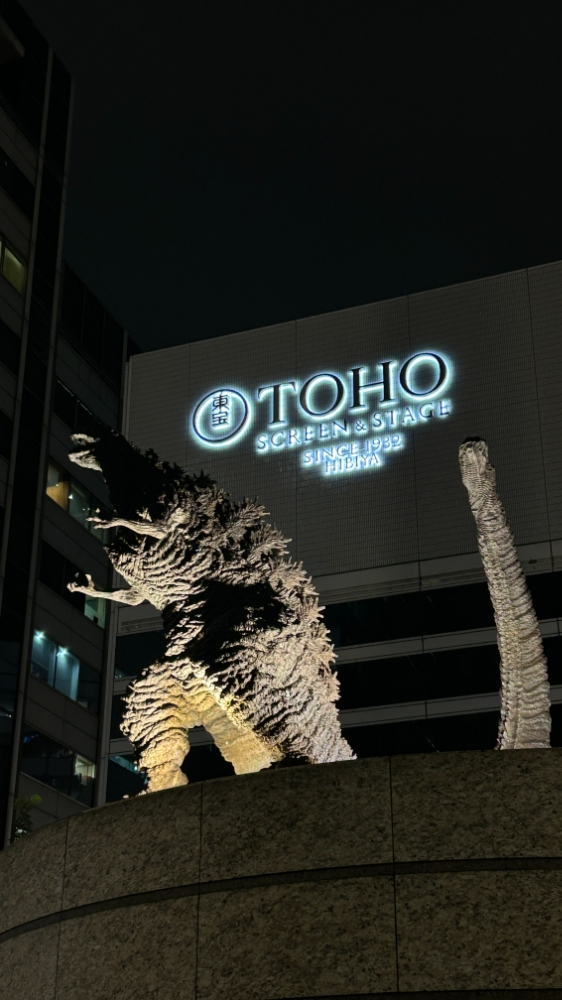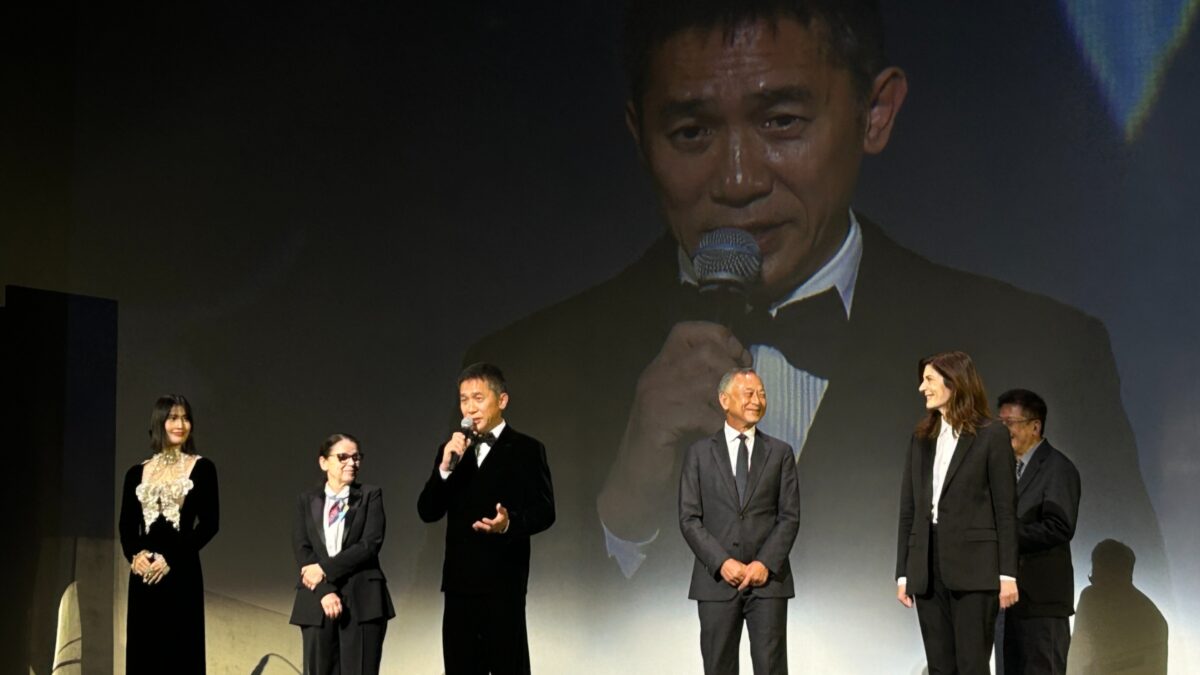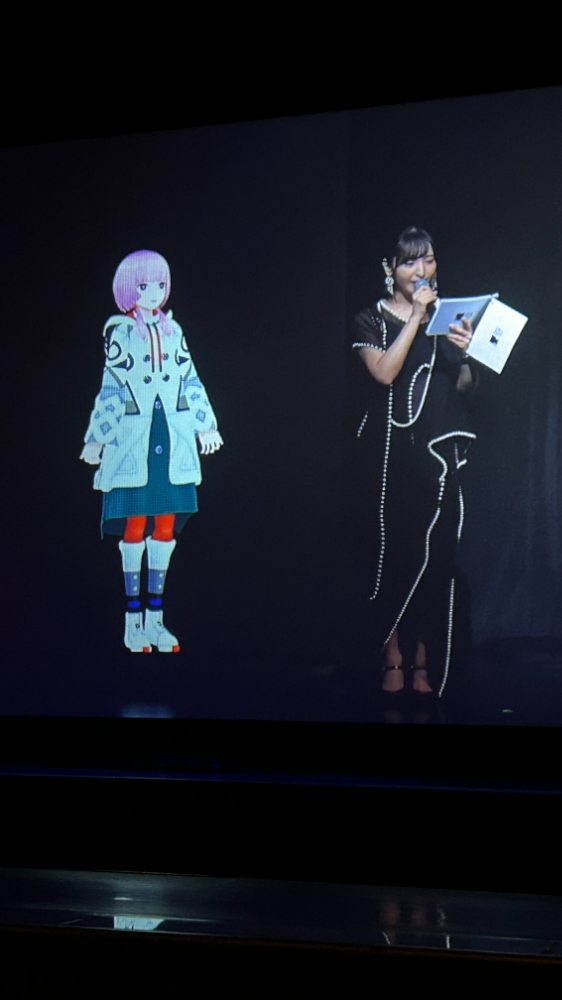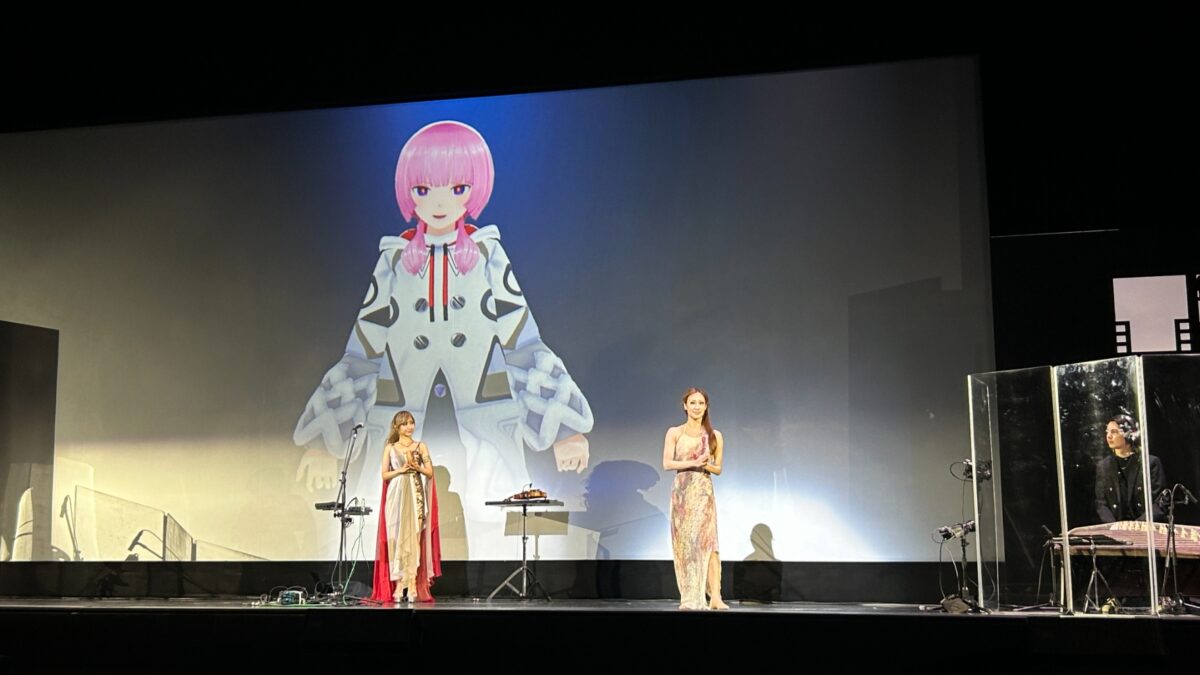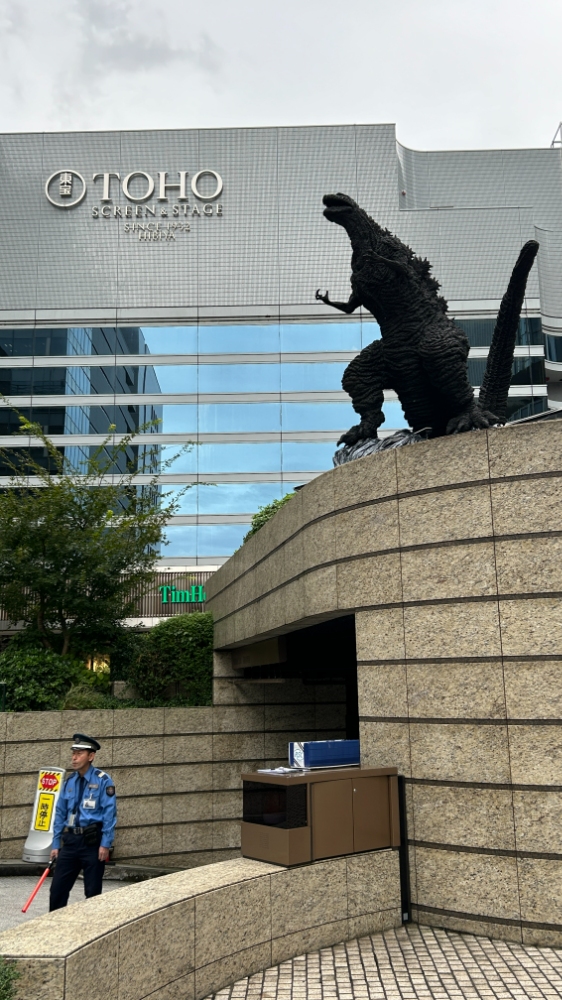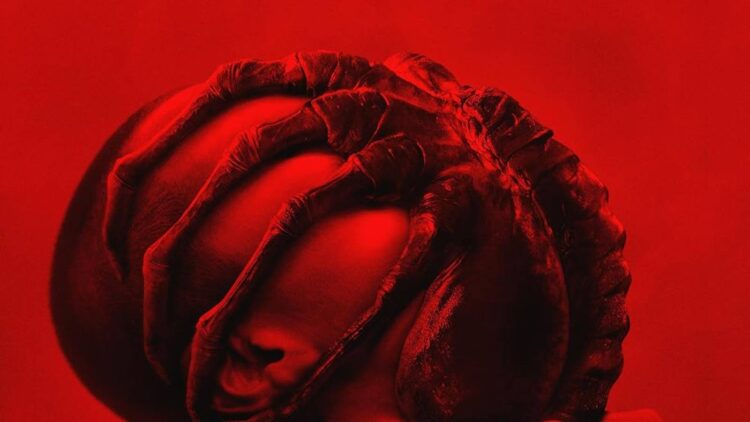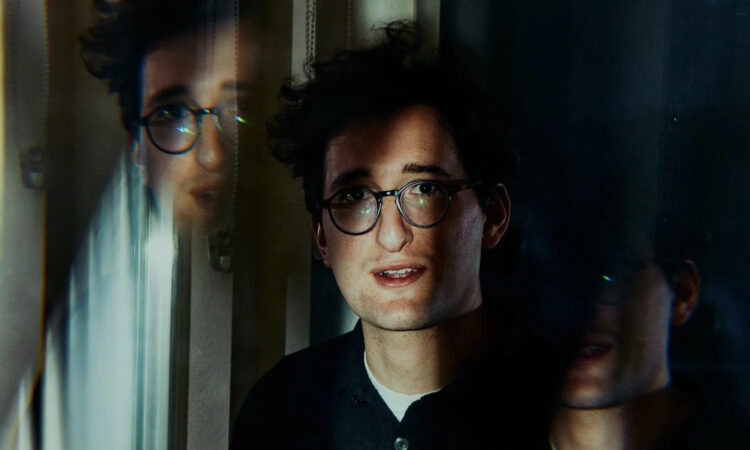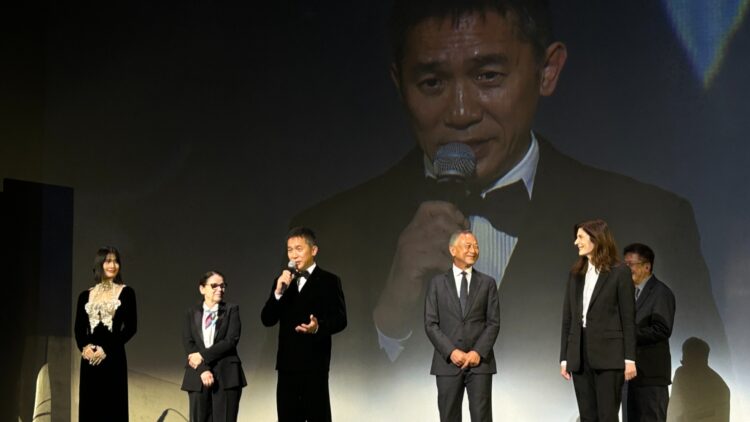

I’ve been late to some events in my life but today’s was the first where Tony Leung locked eyes while I opened the door. This, sadly, was not a one-on-one encounter or beginning of a Hong Kong co-production but the jury press conference for the 37th Tokyo International Film Festival at TOHO Cinema Chanter, which the legendary production company manages, owns, and marks as their own with a Godzilla stationed outside the premises. (Kindly note how it stands proud, even defiant against mankind, in broad daylight and under ominous lighting alike.) Watching even one such event on YouTube––there’s, conservative estimate, 9,000 you can choose from across the span of the international fest circuit––you know how intimate these things get: almost everybody is a little jetlagged, hungover, under-caffeinated, and / or coasting on the energy of a hotel breakfast, the questions are not very good, and answers often their equal; not so much for lack of trying as it is means of reading the room, a skill for which any actor or director has second sight.
I finally arrived after not one but two confusions (both my fault) as to the press conference’s location, each solved with clipped English––no complaints; should the tables be turned, a Japanese speaker would be out of luck and I’m barely holding my end of the bargain as is––hand gestures, and facial expressions meant to convey different levels of understanding or uncertainty. Stress from the mix-ups and skepticism about this format notwithstanding, one totters to their seat as Tony Leung stares them dead ahead, a privilege many might give an entire paycheck to experience just once. He’s in attendance as 2024’s Jury President, leading a pack more formidable than most: Johnnie To, Ai Hashimoto, Chiara Mastroianni, and his Silent Friend director Ildikó Enyedi, who were today supported by a collective three translators (English, Japanese, Cantonese) representing the festival’s broad international scope.
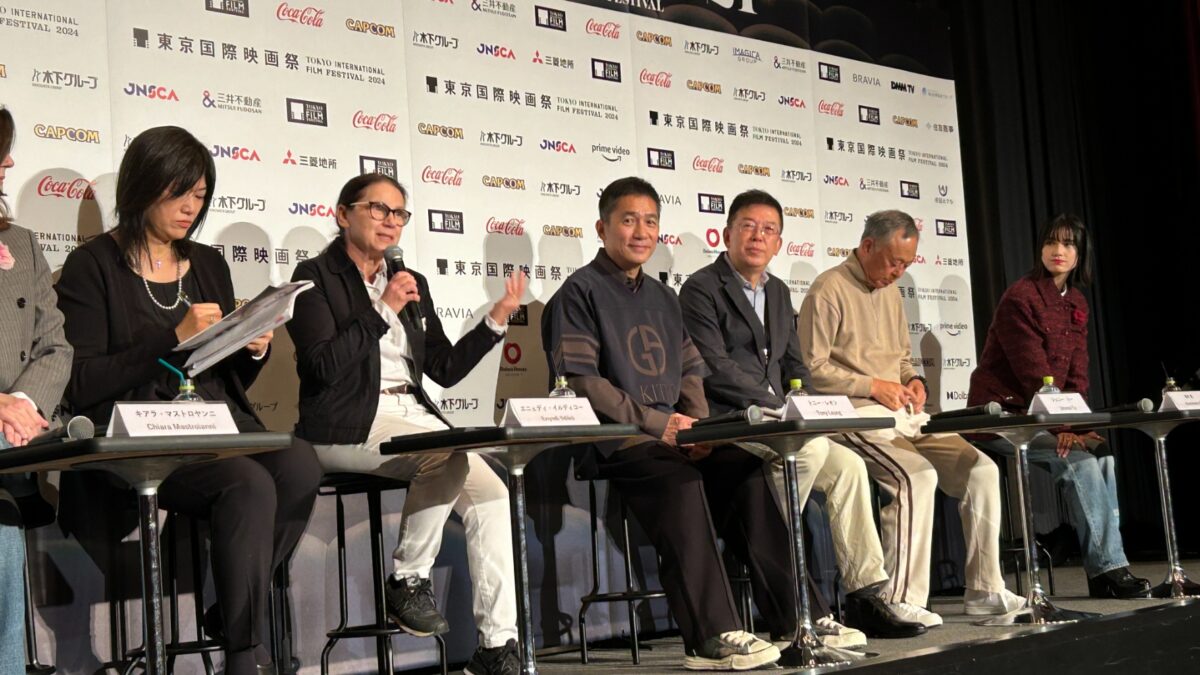
Hesitations about format aside, it’s appreciable as the stripped-down companion to last night’s opening ceremony––itself notable for beginning with a combination live and recorded dance segment and being emceed by KAF, the “virtual YouTuber” who appears in the form of an anime character. It wasn’t made clear why the festival chose KAF as their host; I also suspect finding out wouldn’t be nearly so compelling as watching this cartoon carry conversation with Rinko Kikuchi or transition us out of a recorded greeting from Prime Minister Shigeru Ishiba. (The leader namedropping Marcello Mastroianni, whose centennial is celebrated with a festival retrospective, led me to speculate on the odds of Joe Biden invoking, say, Montgomery Clift in official capacity. I acknowledge that bigger fears surround his Presidency on this of all weeks. Nevertheless.)
Between ceremony and conference, the latter hews closer to preferences of anybody who finds these people interesting. Having met and conversed with so many artists I admire, yours truly can still sit 10-ish feet from this ensemble and think, “Holy shit, that’s actually Johnnie To” while ensuring to note Leung’s Kith sweater (correctly described by one friend who knows the actor neither by name nor face as “so swag”) or Mastroianni’s tasteful jacket and exceedingly controlled posture. These are the best reasons to attend a morning press conference; having one of their waters spill on your pants and in your hair as tables get moved for the photocall is, in some body-horror sense, amusing.
No controversial comments emerged over the course of 45 minutes; nothing to remotely echo To’s allusion to political unrest in his native Hong Kong at the 2023 Berlinale. But personal perspectives still come through, and the director stood out for a different kind of honesty: asked about the honor of being on this jury, To confessed his Tokyo visits are most justified for its “wonderful cuisine.” Moreover, “I got some great tips about other scrumptious dishes from Tony. Every day I come here, I’m immersed with all these other great foods and dishes.” (Everything I’ve eaten my first 48 hours here corroborates this.) Enyedi praised the selection committee’s tilt towards Asian competition titles: “It’s a brave aspect of the Tokyo festival. It chose––this is not an easy path––to find hidden treasures. It’s much easier just to pick the big names. The programming, it’s much more refined and delicate work to find those gems that, thanks to this festival, can perhaps have a great exposure.”
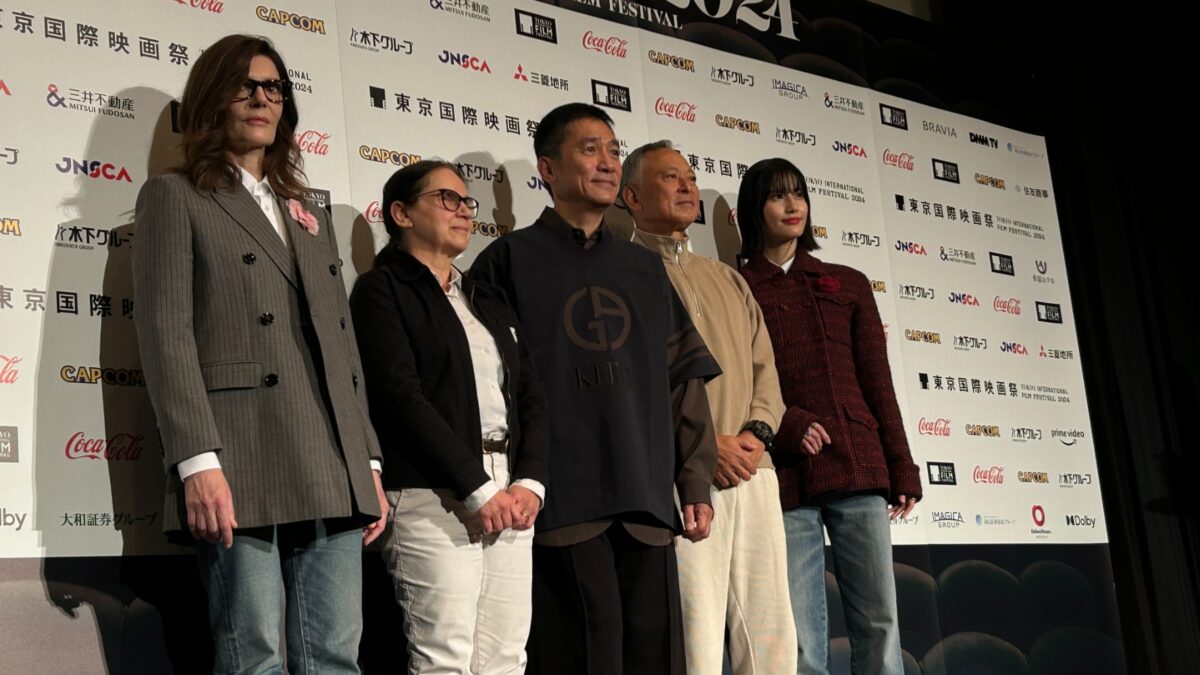
Mastroianni, whose status as cinema royalty is perhaps the most ironclad of anyone living, expressed concern about streaming and COVID’s impact on viewing habits, a sentiment echoed by To’s hope the offering of restored Japanese classics and a Marcello Mastroianni retrospective can cut into “a tendency where young people don’t really see past films. […] Because these audiences do not tend to want to see old movies, they don’t really have this desire to learn about film history or what kind of films existed in the past.” Leung, meanwhile, played humble and self-effacing, expressing a fear-of-sorts that, as Jury President, “Maybe I’m not smart enough.”
But it might be said this team’s lucky not to have every corner of the cinema world casting eyes upon them; whoever wins the top award, however deserving, is less likely than a Palme winner to face months of discourse breeding opinions that begin bordering on invective. If you also consider that the more desirable path any film could travel, the sedate, friendly demeanor undergirding the Tokyo International Film Festival can only be valued.
The post Tony Leung, Johnnie To, and Chiara Mastroianni Talk Cinema’s Future as the 2024 Tokyo International Film Festival Begins first appeared on The Film Stage.


